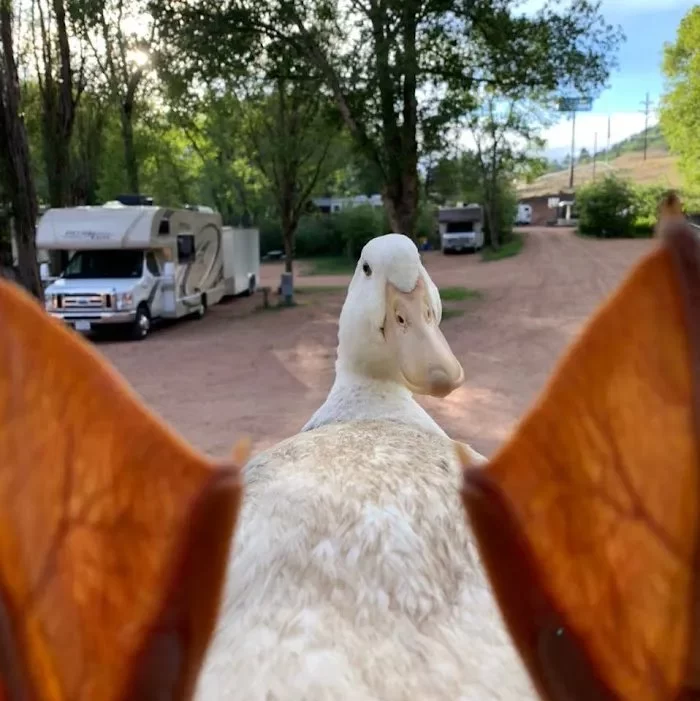Learn how to keep your food safe from animals while camping with expert storage methods, real cases, and practical tips. Discover the best gear at Pine Cliff Resort to make your outdoor adventure safe and worry-free.

- 1 - Why Protecting Food While Camping Matters
- 2 - Understanding Animal Behavior Around Campsites
- 3 - Best Food Storage Methods to Stay Safe
- 4 - Choosing the Right Containers for Camping Trips
- 5 - Real Cases of Wildlife Incidents in Campsites
- 6 - Practical Safety Tips for Campers
- 7 - Where to Get Supplies for Safe Camping
1 - Why Protecting Food While Camping Matters
When you head out into nature, one of the first challenges is learning how to keep your food safe from animals while camping. Food attracts wildlife, from curious raccoons to large bears, and once they smell your meal, they will try to get it. Protecting your food is not only about avoiding a midnight snack raid but also about keeping yourself and the animals safe. Feeding wildlife, even unintentionally, disrupts their natural behavior and can create dangerous encounters.
2 - Understanding Animal Behavior Around Campsites
Animals are opportunistic and have an incredible sense of smell. Bears can smell food from miles away, while smaller critters like squirrels or raccoons are bold enough to sneak into tents. Understanding that animals are drawn by both scent and easy access helps campers realize why proper storage is necessary. For instance, leaving a cooler in the open may signal to a raccoon that a free buffet is waiting.
3 - Best Food Storage Methods to Stay Safe
Several proven techniques can minimize the risk of attracting animals:
1. Bear-proof containers: Many parks require campers to use certified bear-resistant canisters. These are designed to prevent even the most determined bear from opening them.
2. Hanging food: When bear canisters aren’t available, hanging food bags at least 12 feet off the ground and 6 feet away from a tree trunk is a classic method. This keeps your supplies out of reach.
3. Campground lockers: Some campgrounds provide steel lockers specifically designed to keep wildlife out. Using them is always the safest option.
4 - Choosing the Right Containers for Camping Trips
Even if you’re not camping in bear country, using sturdy containers makes sense. Plastic totes with secure lids, vacuum-sealed bags, and odor-proof sacks can all help reduce scent. Remember, rodents can chew through thin plastic, so investing in quality gear saves trouble. At Pine Cliff Resort, you can explore products tailored for campers, from lockable coolers to smell-proof storage bags, making preparation much easier.
5 - Real Cases of Wildlife Incidents in Campsites
In Yosemite National Park, reports have shown how black bears broke into cars just to reach food coolers, even when those coolers were empty. In another case in Colorado, raccoons managed to unzip tents, leaving campers without snacks for the night. These stories highlight why preparation is not optional. They also remind us that the goal is to protect both humans and wildlife—habituated animals often have to be relocated or even euthanized when they become too dependent on human food.
6 - Practical Safety Tips for Campers
Besides using storage methods, a few extra precautions can help:
Clean up immediately: Never leave cooking utensils, plates, or crumbs around. Even small scraps attract animals.
Cook away from your sleeping area: Setting up your cooking zone at least 200 feet away from your tent helps prevent animals from associating your sleeping space with food.
Avoid scented items: Strong-smelling toiletries or garbage bags should be treated like food and stored securely. Animals don’t know the difference between soap and a candy bar until it’s too late.
7 - Where to Get Supplies for Safe Camping
If you’re planning your next camping trip and want reliable supplies, Pine Cliff Resort is a great place to start. From bear-proof containers to camp-safe cooking kits, the right equipment helps you stay prepared and stress-free. Investing in proper gear not only secures your meals but also ensures your outdoor adventure is safe and enjoyable.
Camp HiYo!
11450 Crawford Rd, Homerville, OH 44235, USA
Visit Location PageFloridaBlueSky Campground
2114 Post Oak Rd, Perry, FL 32348, USA
Visit Location Page